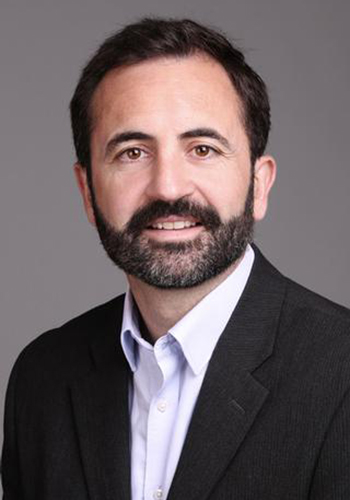
Edmund Lalor
Professor of Biomedical Engineering
Professor of Neuroscience
PhD, University College Dublin (UCDublin), 2007
- Office Location
- 2.B203A Center for Advanced Brain Imaging and Neurophysiology (CABIN), Medical Annex Building
- Telephone
- (585) 275-3077
- Web Address
- Website
Biography
Ed Lalor received the B.E. degree in electronic engineering from University College Dublin, Ireland in 1998 and the M.Sc. degree in electrical engineering from the University of Southern California in 1999. After periods working as a silicon design engineer for a Dublin-based company and a primary school teacher for children with learning difficulties, Ed joined MIT's Media Lab Europe, where he worked from 2002-2005 as a research scientist investigating brain-computer interfacing and attentional mechanisms in the brain. This research led to a PhD in biomedical engineering which was completed through UCD in 2006. Subsequently, he spent 2 years in New York working as a postdoctoral research fellow in the Cognitive Neurophysiology Laboratory at the Nathan Kline Institute for Psychiatric Research and as an adjunct assistant professor in the City College of New York. He returned to a position as a Government of Ireland Postdoctoral Research Fellow based at the Institute of Neuroscience and the Centre for Bioengineering in Trinity College Dublin in 2008. Following a brief stint at University College London's Institute of Ophthalmology, he returned to Trinity College Dublin as an Ussher Assistant Professor in 2011. In 2016, he joined the Departments of Biomedical Engineering and Neuroscience at the University of Rochester as an Associate Professor.
Research Overview
Research in the Lalor lab seeks to explore quantitative modelling approaches to the analysis of sensory electrophysiology in humans. Such a framework has two important advantages over more traditional approaches to this type of research:
1. It enables the examination of the neural processing of natural stimuli such as speech, music and video, thereby facilitating the flexible design of highly naturalistic cognitive neuroscience experiments.
2. It allows for improved spatiotemporal resolution and (accordingly) improved interpretability of non-invasively recorded neuro-electric responses to such naturalistic stimuli.
We seek not only to develop these modelling approaches, but also to exploit them in tackling a number of specific cognitive and clinical neuroscience questions. In terms of cognition much of this work has focused on how we direct our attention to behaviourally relevant stimuli in our environment. This includes studies on visual spatial attention and more recent work on the cocktail party problem. In addition, we are interested in how we integrate visual and auditory information when processing natural speech. In terms of clinical research, through collaboration, we investigate these sensory processing questions in patients with schizophrenia and in children with developmental disorders.
Research Interests
- Human sensory neurophysiology, brain-computer interfacing, computational neuroscience, neural encoding of natural sounds, sensory processing in psychiatric and developmental disorders
